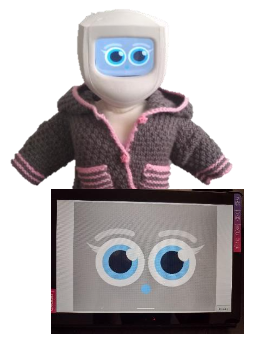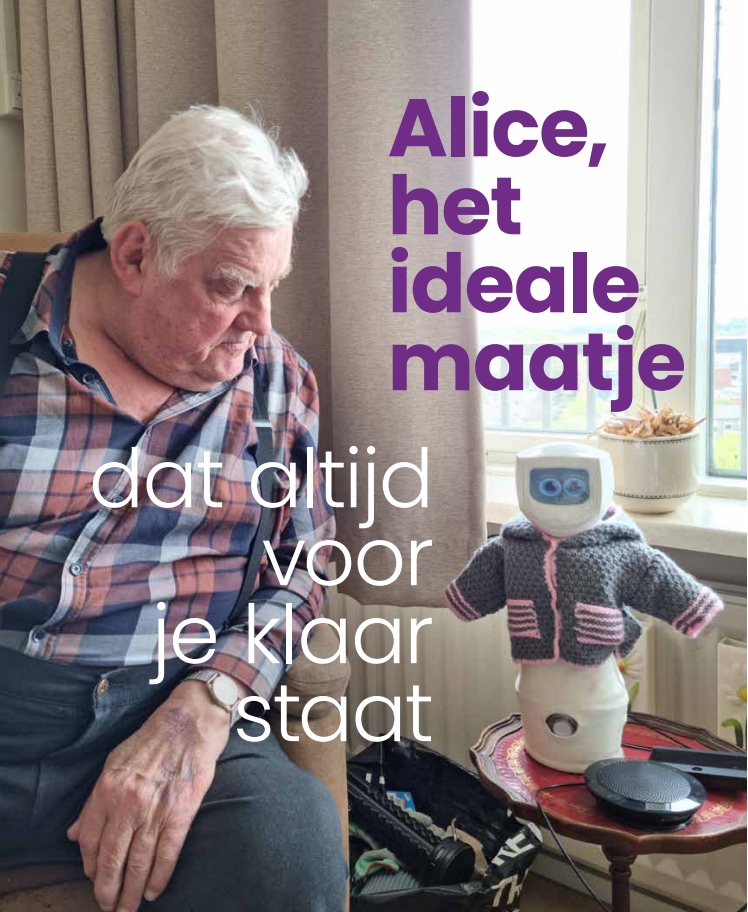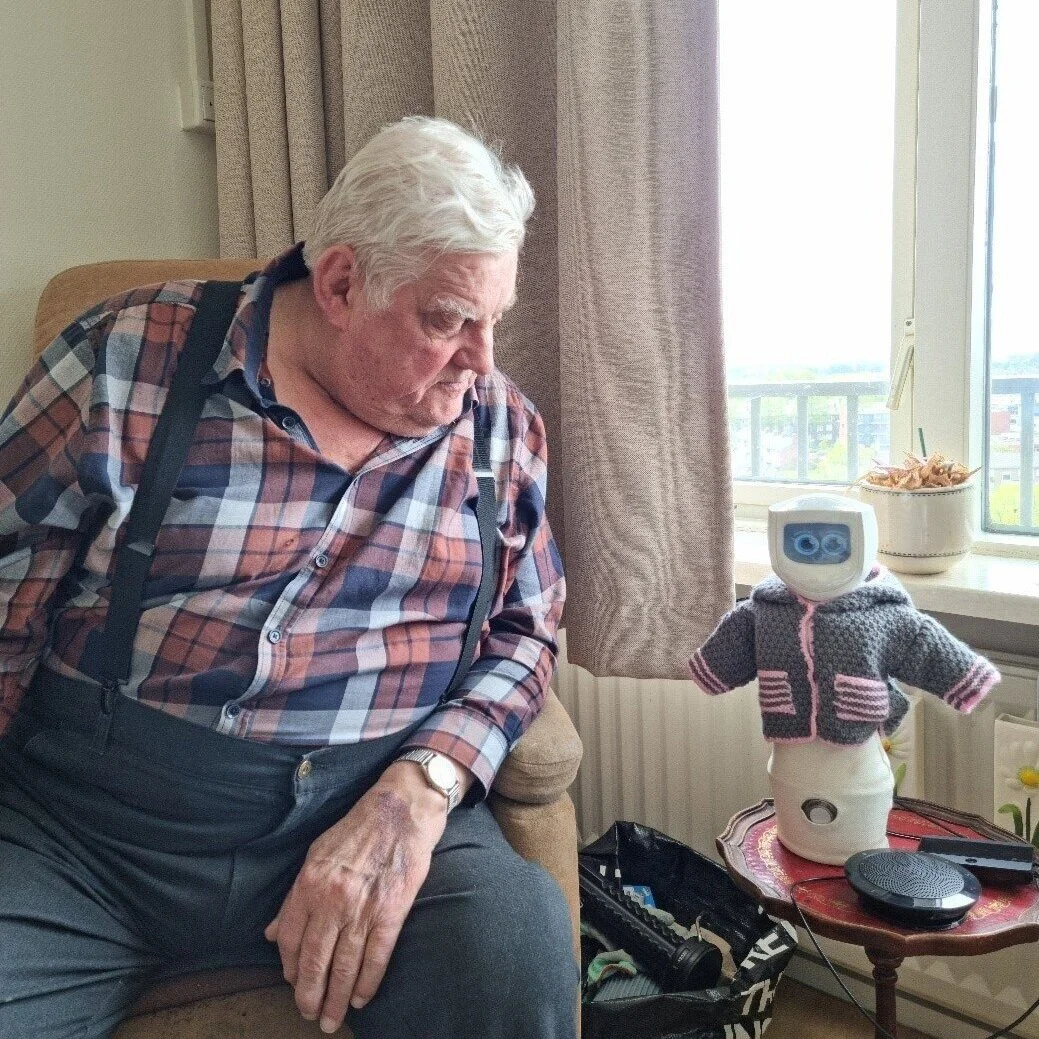Timeline
A short retrospective of what we have achieved already
2023
In 2023, the Alice 2.0 project was completed. Overall, results support that such interaction with social robots can mitigate stress and provide social-emotional support to the elderly. However, the project faced different methodological (e.g. low turn-out, difficulties with data collection) and technical limitations (e.g. sub-optimal robot performance).
Despite these challenges, the observed results are consistent with our expectation that social robots can become a useful tool to mitigate loneliness and improve well-being in the elderly, and highlight the need of additional research to fully validate the potential benefits of social robots in elderly healthcare.
A full account of the results of this study are linked here. The theoretical framework on which the study is based on can be found here.
2022
Data collection for the Alice 2.0 project is continued in various elderly care homes.
Article in Dutch: Alice, the perfect buddy that is always there for you
2021
Alice is prepared for the next project
2019
Survival pilots during which Alice is placed with end users for a certain period of time, without human interference
From September 2019 onwards, students from the VU can follow a multi-disciplinary master track ‘Socially Aware Robotics’ and become involved in the development of Alice through assignments
Alice once again appears in several media, among which Skipr, NRC, Omroep Max, conferences, and AI for Good Summit
2018
Co-creation to further develop the prototype
Alice 2.0
Continuation of user study and experiments resulting in additional knowledge to optimize conversations
Signing the Letter of Intent between VU & Deloitte
2017
Collaboration VU with the Impact Foundation of Deloitte
You can read more about the role and intention of both organisations here
Development new Alice vision and design criteria
User study and experiments resulting in a first new prototype
2016
During the project Alice was the motivation for developing artificial intelligence and her interaction with users led to designing the Robot Brain Server in 2016
Here you can read more about the Robot Brain Server
2010 - 2015
Development social robot at the VU and the release of Alice 1.0 in 2015
This was the result of the project Services of Electro-mechanical Care Agencies (SELEMCA) that the VU acquired in 2009 from the Ministerie van Onderwijs, Cultuur en Wetenschap within the national CRISP program (Creative Industries Scientific Program)
Exploration of collaboration with additional parties
Are you curious how you or your organisation can be of importance during the development of Alice? You can always reach out to one of our project leaders

















